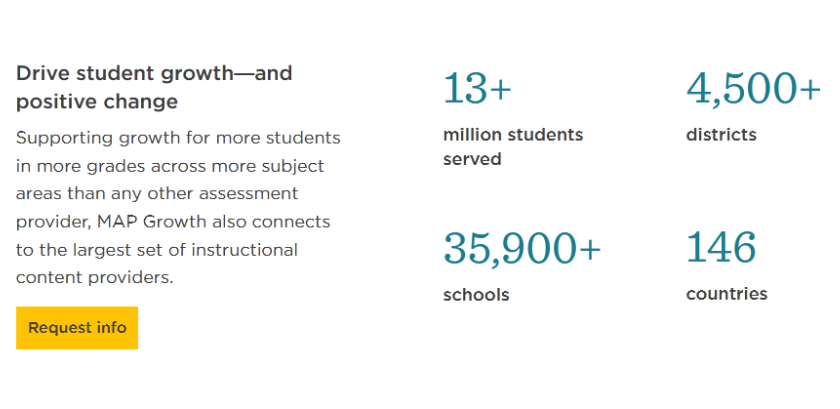本期为大家推荐爱丁堡大学、阿尔伯塔大学2026最新奖学金项目介绍。
1、爱丁堡大学
Study History, Classics and Archaeology at the University of Edinburgh - funding opportunities available
University of Edinburgh | School of History, Classics and Archaeology
资助的博士项目(全球学生)
About the Programme
The School of History, Classics and Archaeology at the University of Edinburgh is one of the great world centres for the study of the human past. By studying with us, you will be joining one of the most respected institutions of its kind in the world, with an international reputation for high-calibre teaching and research.
The University of Edinburgh is consistently ranked one of the best 50 universities in the world and is 10th in the 2025 QS World University Rankings for Arts and Humanities.
Our Programmes
The PhD is a 3-year (full-time) or 6-year (part-time) programme, leading to a dissertation of no more than 100,000 words on an original topic, researched and written under the expert supervision of academic staff. We also offer a PhD by Distance mode of study for students who wish to study remotely and whose project and experience allows them to do so.
We offer PhDs in:
- History
- Economic and Social History
- Scottish History
- Classics
- Archaeology
History:
The size of Edinburgh’s History department, and the breadth of expertise available, means that we can offer supervision for research projects in a wide array of fields, spanning two millennia and five continents.
We have particularly strong research concentrations in Scottish history, history of the Americas, African history, Second World War Studies, British and Irish history, social and economic history, and medieval history.
We are also keen to encourage applications from prospective doctoral students in the following research areas:
- Global and Transnational History
- Intellectual History of early modern Europe
- History of Gender and Sexuality
- Material Culture and History
Classics:
Edinburgh’s Classics department is one of the largest in the UK, and we welcome applications for all areas of Classical studies: Greek and Latin literature and thought, Greek, Roman and Byzantine history, Classical art and archaeology. Among areas of particular strength are Greek literature and the emotions, Greek political history, slavery in the Greek and Roman world, Roman and Late Antique archaeology, Late Antique literature, and Byzantine history.
We are also keen to encourage
applications from prospective students in the following research areas:
- Ancient Law
- The Classical Tradition in Byzantium/the Medieval West
Archaeology:
Our research interests range span the whole human past from the Stone Age up to the present day and range from late hunter-gatherers in Europe to the construction of sustainable cities in Africa. We have particular research interests in European prehistory, Mediterranean archaeology, osteoarchaeology, bioarchaeology, isotope geochemistry, coastal and marine archaeology, and cultural heritage studies. We are also keen to encourage applications from prospective doctoral students in the following research areas:
- Cultural Heritage and Community Engagement
- Scottish Archaeology
- Egyptology
Study
PhD students participate actively in our lively research culture through our groups and centres and through staff and student-led seminars. We have a number of cross-School research groups, including Intellectual History; Late Antique and Byzantine Studies; Histories of Gender and Sexuality; Global and Transnational; the History of Science, Medicine and Technology. We also have four Research Centres: The Centre for the Study of Modern and Contemporary History; the Edinburgh Centre for Global History; and the Centre for Late Antique, Islamic and Byzantine Studies, and the Centre for Medieval & Renaissance Studies.
The School provides training in research and professional skills, and PhD students also benefit from courses offered by the Institute of Academic Development, as well as the Scottish Graduate School for Arts and Humanities and the Scottish Graduate School of Social Science. PhD students have access to dedicated study space in the School.
Funding
The School has access to a number of sources of PhD funding, the availability of which varies from year to year. Potential funding competitions include those with the AHRC and ESRC, as well as the University of Edinburgh. All of these are open to applicants for on-campus programmes, while PhD by Distance applicants can apply to School and College awards.
How to apply
To find out more about the research interests of our staff and to identify a potential supervisor, please consult our website(https://www.findaphd.com/common/clickCount.aspx?theid=2521&type=186&DID=2923&url=https%3a%2f%2fhca.ed.ac.uk%2fabout-us%2fabout-our-staff%3futm_source%3dFindaPhD%26utm_medium%3dresearch-page%26utm_id%3duoe-hca-pg25).
Applicantsmustcontact a potential supervisor before applying and name them on their application. All applicants will also be interviewed following their initial application. Further information is available from the Postgraduate Research Office: HCA-PGR@ed.ac.uk
2、阿尔伯塔大学
Research and data synthesis in different topics in ecology and evolution, including meta-science & methodolgical development
University of Alberta | Biological Sciences
博导:Prof SHINICHI NAKAGAWA
截止日期:全年可申
资助的博士项目(全球学生)
About the Project
The PI will build an international hub or Centre for Open Science and Research Synthesis in Ecology and Evolution to revolutionize and improve scientific practises in ecology, evolution, and related fields, such as conservation and environmental sciences, by forming a large international collaborative network. The core interdisciplinary team will include biologists and computer and social scientists from UoA. This new lab (Centre) will conduct meta-analyses and other quantitative syntheses using all data types (e.g., citizen science data, climate data) and develop new methodologies. Therefore, we intend to lead and direct future research across many topics in ecology and evolution.
Over the next few years, the PI aims to build up a lab of ~20-25 people: postdocs, graduate students, research assistants, and a lab manager. This lab will be a place where people work together towards the ambitious vision and to reach their highest academic and personal potential. All lab members will have opportunities to participate in and help run collaborative workshops where participants learn synthesis methods and generate the latest evidence for various topics in ecology and evolution.
For more information about the PI and his past work, visit his Australian lab webpage and also read his interview at Current Biology.
Position, salary, and location:
- The appointment will be for 5 years
- The salary starts at $ $25,917/year for 5 years (guaranteed with teaching assistantships)
- Lab members will be expected to work at a newly refurbished lab space at the University of Alberta, Edmonton, one of Canada's most affordable places to live .
Work descriptions and duties:
- Leading research synthesis, methodological, or meta-science projects in consultation with the PI and other collaborators (on research topics that align with the applicant’s interest and skills within PI’s CERC program remit).
- Completing research projects, publishing them, and collaborating with other researchers at the Centre.
Eligibility, necessary qualifications, and qualities:
Bachelor’s degree in biology (ecology, evolution, and environmental sciences), psychology, statistics, mathematics, computer sciences, philosophy or related fields.
- Self-motivated and eager to learn new skills. While quantitative methods can be intimidating, if you are self-driven and open-minded, we assure you that you can learn these skills and become a world-class researcher.
- Excellent organizational and communication skills
- We are open to applications from any country
Preferred experiences and skills:
- Coding experience is preferred but not required (e.g., in R Python, Julia, MATLAB)
- Willingness to think critically about hot topics in conservation biology and ecology.
- Prior research experience is recommended.
How to apply:
Please send the PI (Shinichi Nakagawa: shinichi.nakagawa@ualberta.ca) an email with the following attachments (or a link from which the documents can be downloaded)
- A cover letter describing experiences and research interests
- Transcripts
- Contact details of three referees (two are fine, too)
- A two-page (max) statement of research interests (please read the CERC application and discuss the link between your research interest and the CERC program).
- A one-page (max) diversity and social impact statement (describing strengths and experiences in equity, diversity, and inclusion, and/or social activities such as volunteering at learned societies and outreach activities, and/or other extra-curricular activities, and/or supervisory/teaching experiences)
- Please send the application by 31 March 2025 (first deadline, but later applications are considered)
Funding Notes
The salary starts at $ minimum guaranteed salary of $25,917/year for 5 years (top-up awards can be applied later)













